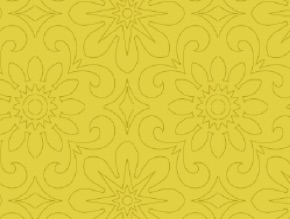Bathing for the Elderly
Question
The big controversy in our family is how often our 89-year-old mom should get in the tub to bathe. On one side, we have the group that feels a daily bath or shower is essential throughout life. On the other side, we have those that feel that bathing like we do is not necessary.
Mom has lost the ability to bathe on her own. For her to get in and out of the tub or shower someone must assist her for safety reasons. No one in the family feels qualified to help with bathing. Frankly, no one wants to tackle this task.
Before we hire someone to help mom bathe, we are wondering how often is enough?
Answer
In our society we tend to bathe daily. For most people, that means a bath or shower before bed or before work each morning. That is the habit for most working adults. It is born out of necessity for us. Younger adults produce more body oils and perspiration. We also want to decrease any chance of body odor when around others, because there is societal pressure to smell good, or not to have a smell.
Your mother is in a different situation. She is no longer working. She is likely not doing any manual labor either. She may not be generating much body odor at this point. Therefore, her needs are now different than yours, though they have not gone away. She still needs to wash, or she will become odoriferous just as younger adults do. The frequency of her immersion in water though could be decreased from daily.
I am assuming that your mother is not incontinent because you did not mention that being an issue. If she were incontinent the need would increase to daily once again, with clean up throughout the day, just as with an infant.
Your mother would be fine with a “sink bath” most days. That is bathing with a sink of water, soap, and a wash cloth. Sink bathing is usually face, under arms, and groin. It is a partial bath only and is less effective than immersion, as one is only washing key areas. Once or twice a week, a tub bath or shower would likely be adequate. Bathing does soften and remove dead skin and bacteria. Hair and scalp need shampooing once a week for most elderly. It is also a time when the skin can be fully examined for wounds or other skin issues.
Do note that there are those individuals that produce a large amount of body oil who may need bathing every other day, or even daily for some, even as older adults. It does depend on the individual and their body type.
Tub or shower bathing has a number of other effects on the body: it is relaxing, sleep promoting, a psychological boost, soothing for arthritic pain, and an enjoyable task for most. We all know how good it feels to be immersed in water. When that water is warm it feels even better.
Yes, she would survive without getting into the bath or shower ever again. I would recommend though that you find a solution that allows her to bathe in a tub or shower once or twice a week at a minimum. If she is not maintaining good hygiene with sink bathing, you simply increase the frequency of the bath schedule. Since there is no one in your family that is willing to assume this task, you will need to hire someone or an agency to provide the care for her. A few phone calls can get the process started for you.
This is always one of the more sensitive and anxiety provoking caregiving topics we face with elderly parents. It is no surprise that there is some discussion about how to handle the need. With a little bit of effort, you will find a solution. I hope the transition goes smoothly for you and your mother.
About this Post
Posted 11.01.2024





